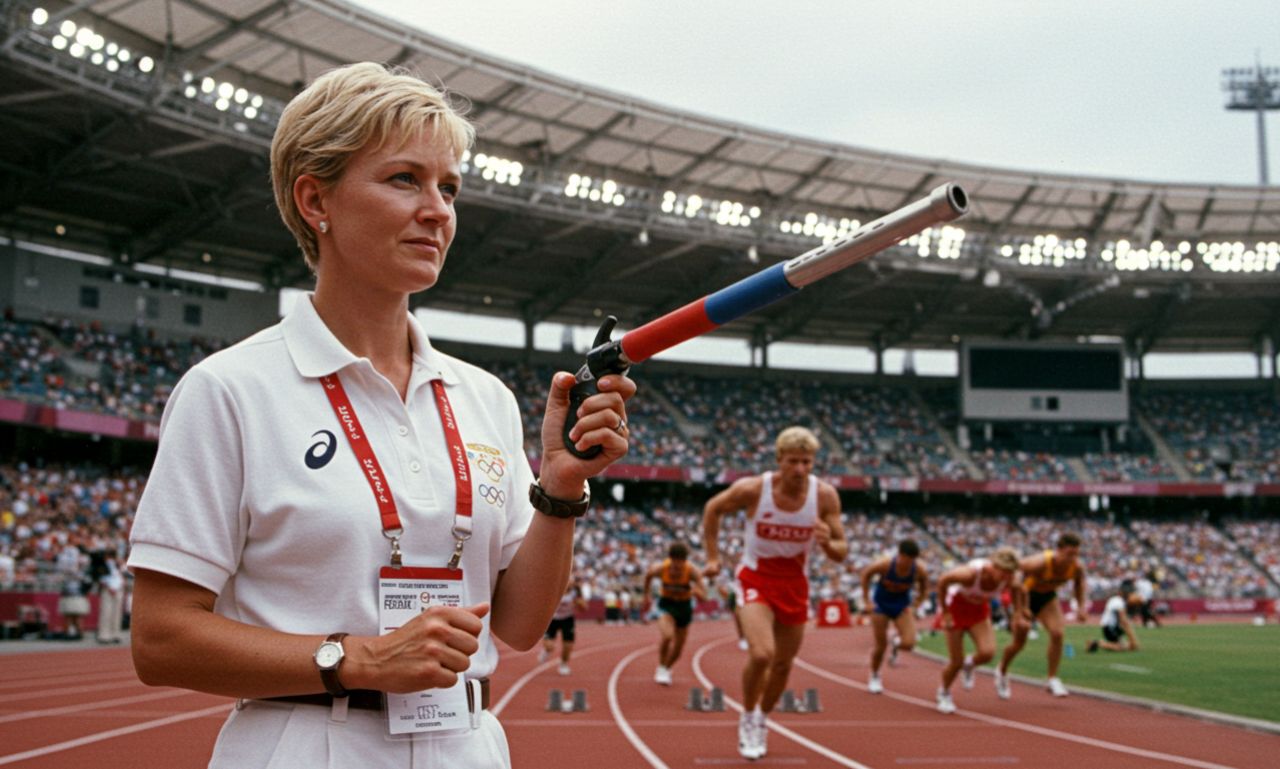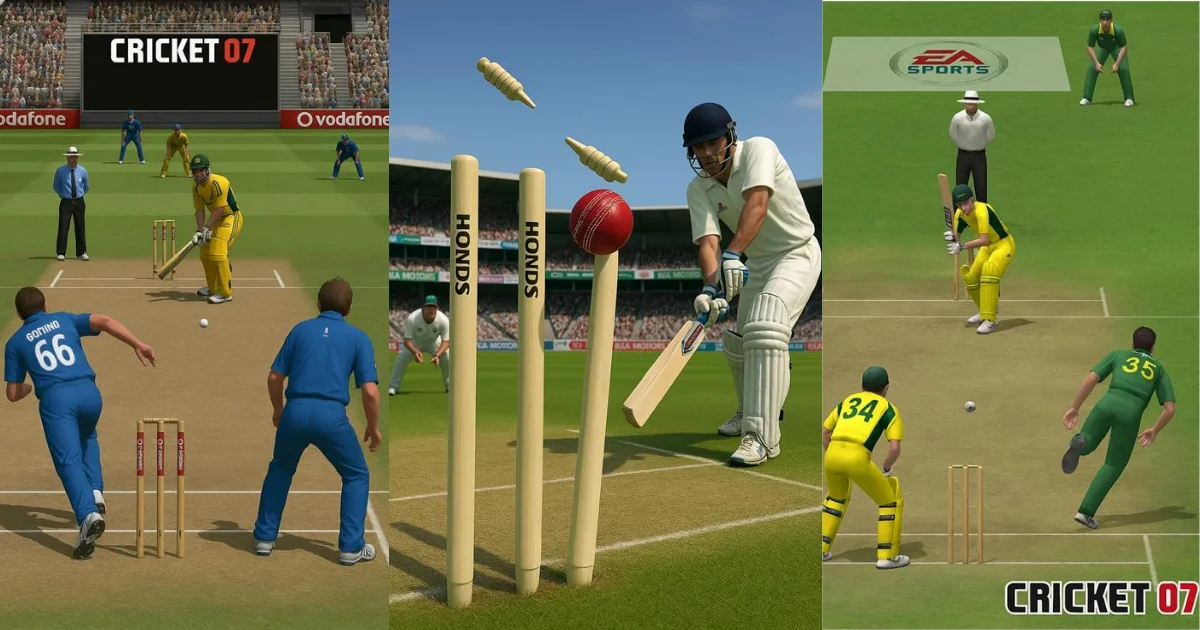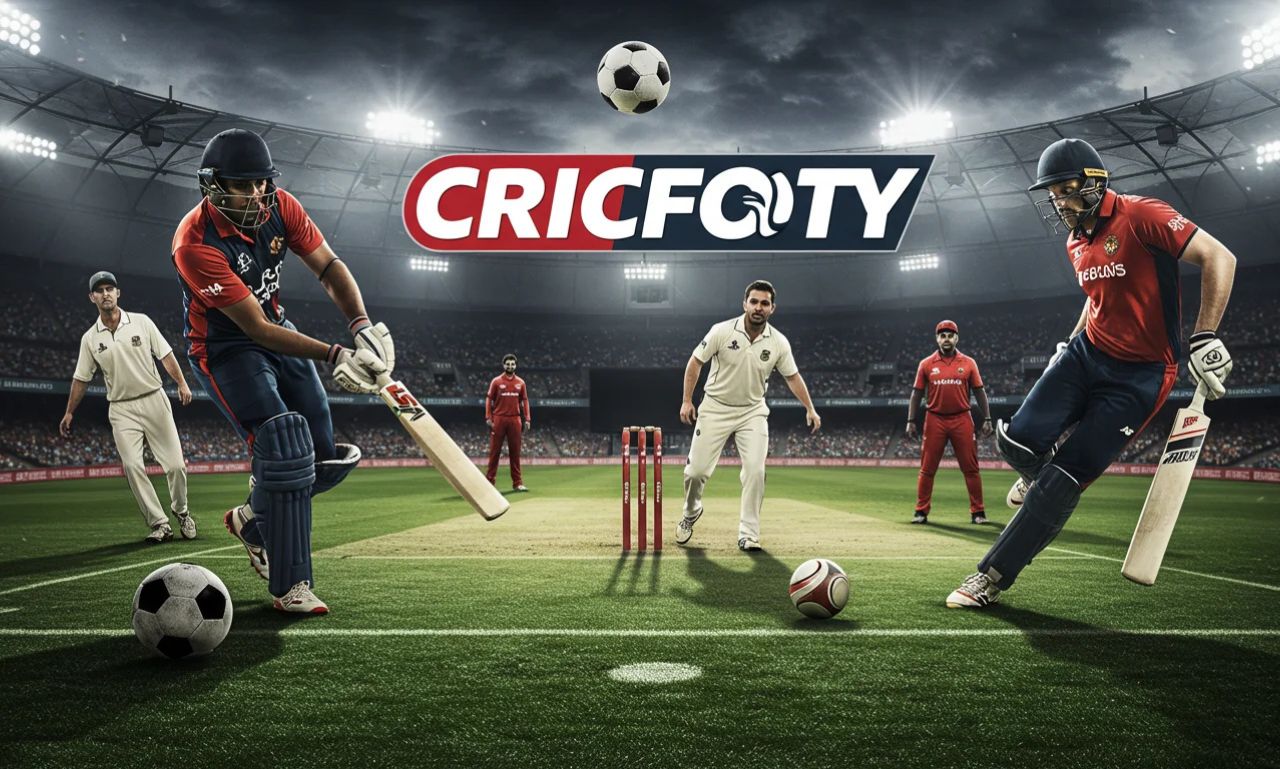Sports
Olympic Starter: Ensure Fairness and Excitement at the Games

The Olympic Games represent the pinnacle of athletic achievement, where dreams are pursued and records shattered. Every four years, athletes from around the globe come together to compete for glory, showcasing their incredible talents on one of the world’s biggest stages. Amidst this thrilling atmosphere lies a fundamental principle: fairness. To ensure that each athlete has an equal chance at victory, innovations like the Olympic Starter play a crucial role in shaping these monumental events.
As we dive into what makes these games not only competitive but also exhilarating, it becomes clear that maintaining integrity is essential. From past controversies to modern solutions leveraging technology and inclusivity in sports, every detail matters in creating an unforgettable experience. Join us as we explore how fairness and excitement intertwine at the heart of the Olympics!
What is Olympic Starter?
The Olympic Starter is a pivotal role within the Olympic Games. This individual ensures that all competitions begin fairly and on time. Their primary responsibility involves managing the starting procedures for various events, particularly in athletics.
Acting as the gatekeeper of fairness, the Olympic Starter signals athletes when to prepare for their event. They follow strict protocols to guarantee that everyone has an equal opportunity to perform at their best.
This position demands precision and awareness. A misstep could lead to disqualification or unfair advantages among competitors. The atmosphere during these moments is charged with anticipation.
By maintaining control over starts, they play a crucial part in upholding the integrity of each event while enhancing spectator excitement. With every whistle blown or gun fired, they contribute significantly to the thrill of competition at one of the world’s most prestigious sporting events.
The Importance of Fairness and Excitement at the Games
Fairness and excitement are the heartbeat of the Olympic Games. They draw in millions, fueling a passion for sports that transcends boundaries.
When athletes step onto that world stage, they deserve a level playing field. Equal opportunities ensure that talent shines without interference. Every race, every match should reflect true skill rather than advantage gained through unfair practices.
Excitement amplifies the spirit of competition. Each event captivates audiences, inspiring future generations to dream big. The thrill of watching records broken or underdogs triumph keeps fans invested and engaged.
Maintaining this balance is essential for preserving the Olympics’ legacy. It fosters trust among participants and spectators alike while showcasing sportsmanship at its finest.
Fairness fuels excitement just as much as thrilling moments ignite hope in aspiring athletes around the globe. Together, they create an unforgettable experience that defines what it means to compete on an international stage.
Controversies Surrounding Past Olympic Events
The Olympic Games have always been a stage for remarkable athleticism, but they are not without their controversies. From doping scandals to biased judging, the integrity of the Games has faced scrutiny over time.
One notable instance occurred during the 2000 Sydney Olympics when several athletes were disqualified for using performance-enhancing drugs. This incident raised questions about drug testing protocols and how fair competition could be maintained.
Another significant controversy erupted in the 2002 Salt Lake City Winter Olympics due to figure skating scoring manipulation. The public outcry led to demands for transparency and reform within judging processes across sports.
Moreover, political tensions have influenced events as well. Countries boycotting games or sending mixed messages can overshadow the spirit of unity that the Olympics aim to promote. These moments remind us that while sports inspire, they also reflect societal challenges we must address continuously.
Solutions to Ensure Fairness and Excitement
Ensuring fairness and excitement at the Olympic Games requires innovative solutions. One effective approach is implementing rigorous training protocols for judges and referees. By standardizing evaluation criteria, we can minimize bias in decision-making.
Additionally, transparency plays a key role. Real-time data analytics during events could provide insights into performances, allowing spectators to understand judging better. This openness fosters trust among athletes and fans alike.
Another solution lies in athlete education. Empowering competitors with knowledge about rules and regulations creates an informed environment where everyone understands expectations.
Incorporating diverse perspectives also enhances fairness. By including representatives from various backgrounds on organizing committees, different viewpoints lead to more balanced decisions that reflect a wider range of experiences.
Fostering community engagement through fan input can bring fresh ideas to the forefront while ensuring that the essence of sportsmanship remains intact throughout every competition.
Implementation of Technology in Olympic Sports
Technology has revolutionized the way sports are played and judged at the Olympic Games. From advanced timing systems to instant replay, athletes now compete in an environment that prioritizes precision.
One significant innovation is the use of video review for controversial calls. This allows officials to make more informed decisions, enhancing fairness during critical moments.
Wearable technology also plays a role. Athletes can track their performance metrics like speed and heart rate in real-time. Coaches utilize this data to fine-tune strategies and optimize training methods.
Additionally, virtual reality is emerging as a tool for athlete preparation. It immerses competitors in simulated environments similar to actual events, helping them acclimatize better before competing on the world stage.
These advancements not only elevate competition standards but also increase fan engagement through enhanced viewing experiences.
Inclusion of New and Diverse Sports at the Games
The Olympic Games have always been a celebration of athletic prowess and cultural diversity. As the world evolves, so do the sports that capture our imagination. The inclusion of new and diverse sports reflects this changing landscape.
Take skateboarding and surfing, for example. These dynamic activities appeal to younger generations and add an exciting edge to the competition. They bring fresh fans who may not traditionally engage with Olympic events.
Moreover, introducing sports from various cultures promotes inclusivity. Sports like karate or breakdancing showcase talent from different backgrounds, enriching the Olympic experience for everyone involved.
This embrace of variety fosters a sense of unity among nations while highlighting individual excellence in unique ways. Each sport tells its own story, drawing athletes from around the globe into one arena where passion knows no bounds.
Maintaining Integrity and Spirit of the Olympics
The integrity of the Olympics is paramount. Athletes strive for greatness, embodying dedication and hard work. The spirit of competition should celebrate these qualities.
Maintaining this integrity requires vigilance. Anti-doping measures are essential to ensure fair play. Transparency fosters trust among athletes and fans alike.
Another crucial aspect is adherence to the values that define the Games: respect, excellence, and friendship. These principles inspire unity among diverse nations.
Cultural exchanges during the Olympics also amplify this spirit. They promote understanding and camaraderie beyond borders.
Engagement from athletes in advocacy roles can further enhance these ideals. Their voices resonate with millions, influencing positive change within their communities.
Every edition of the Games serves as a reminder that honor in sport must prevail over all else—it’s about more than just medals; it’s about legacy and inspiration for future generations.
Conclusion
The Olympic Games stand as a symbol of human achievement and unity. They inspire athletes and fans alike, showcasing the pinnacle of sportsmanship.
With innovations like the Olympic Starter, fairness in competition can be elevated to new heights. The integration of technology makes it possible to minimize errors and enhance the integrity of events.
As we embrace evolving sports within this grand platform, there’s an opportunity for greater representation. This diversity not only enriches the experience but also captivates audiences worldwide.
Maintaining the spirit of the Olympics requires ongoing commitment from all stakeholders involved. By prioritizing excitement alongside fairness, future games can continue to leave lasting impressions on generations to come.
FAQs
What is the role of an Olympic Starter?
The Olympic Starter plays a crucial role in ensuring that races begin fairly. They are responsible for signaling athletes to start and maintaining order during events.
How does technology improve fairness at the Olympics?
Modern technology, like photo-finish cameras and timing systems, enhances accuracy in measuring results. These advancements help ensure that every athlete gets a fair chance.
Why have some sports been removed from the Olympics?
Certain sports may be removed due to low participation rates or lack of global interest. The goal is to keep the Games fresh and appealing.
Are there plans for more diverse sports in future Olympics?
Yes! The International Olympic Committee actively seeks new sports that reflect current trends and interests among youth worldwide.
How do controversies affect public perception of the Olympics?
Controversies can cast shadows over the spirit of competition. However, addressing these issues head-on helps restore faith in the integrity of the Games.
Can anyone become an Olympic Starter?
Becoming an Olympic Starter requires extensive training and experience in officiating athletics. It’s not just about starting races but understanding rules deeply.
What measures are taken against doping at the Olympics?
Strict testing protocols are enforced to deter doping, including random tests before and after competitions. Upholding clean sport is a top priority for organizers.
These questions highlight both common concerns about fairness at the Olympics as well as curiosity about how traditions evolve with time. Understanding these aspects enriches our appreciation for what it takes to put on such a monumental event each cycle.
Sports
Basketball Shooting Machine Maintenance: Tips to Keep Your Shooting Tool Game-Ready

A Basketball Shooting Machine is one of the smartest investments for any trainer, training institute, or coach. These Shooting Machine Basketball uplift training efficiency. It helps players to develop better muscle memory. A basketball shooting machine is equipment and requires proper care to stay accurate and long-lasting. Whether you buy a basic basketball shot trainer or an advanced machine, regular cleaning is very important for maintenance. Check out a few easy-to-follow steps to keep your shooting machines maintained.
1. Maintenance of the Machine regularly
Maintaining your machine on a regular basis is very important. As you use the machine, dust can easily build up over time. If not cleaned properly, dust will affect the functioning of the basketball shooting machine. Make sure you remove the dirt from the net regularly. It is important to check the ball tracks for any kind of obstructions. If you clean your basketball shooting machine regularly, you will get one hundred per cent accurate results.
2. Inspect the Netting and Rebound System
A net system is a very important part of any basketball shooter. If the net gets torn or loose, the machine will not be able to guide the balls properly. Always look for frayed net edges, loose straps or hooks, bending or cracking in the rebound arms or ball trajectories getting stuck or misdirected. It is important to change the worn-out net quickly.
3. Lubricate Moving Parts
A shooting basketball machine consists of many moving parts, such as motors, rollers, and ball launchers. These paths get dried up easily because of the friction. When the usage is higher, these parts become slow and noisy. Make sure you regularly lubricate all the gears. You must tighten all the screws and joints.
4. Update the Control Panel & Software regularly
You need to make sure that the control panel buttons are working smoothly. The display on the machine is visible and glitch-free. Free wireless and Bluetooth connectivity work properly. It is very important to keep your software updated for the smooth functioning of the shooter basketball.
5. Check the Power Supply
This is one of the most overlooked yet important maintenance steps. You must always check the power cords for cuts, bends or overheating. Have proper plug points for stability. Surge protectors to prevent voltage damage. If your power source is stable, it will ensure that the machine runs at full capacity.
6. Test the Ball Feeding System Frequently
The ball return system affects the rhythm of every practice session. If it jams, players lose tempo and repetition efficiency decreases. You must inspect ball feeding speed, roller grip, consistency, any delay in ball return, and whether any different ball texture is moving smoothly.
7. Store Properly When Not in Use
You will usually find a basketball shooter. The Shooting Machine Basketball is an open gym set up in dusty environments. It is important to store your machine properly to prevent any damage. You must fold and lock the machine according to the manufacturer’s instructions. You must cover it with a dustproof sheet. You must definitely not store the machine directly in the sunlight or in moisture. Keep the machine in the temperature-controlled area.
8. Train Staff and Players on Correct Usage
It is very important to train your staff and players to use the portable Shooting Machine Basketball correctly. Training institutes or coaches must ensure that the players know how to start and stop the machine safely. Make sure you don’t overload the machine with too many balls.
9. Schedule Servicing Regularly
Make sure you book a professional checkup for shooter basketball on a regular basis. They will properly replace the internal parts, test the motor performance and fix the hidden wear-and-tear problems. Proper and regular servicing will help to keep your basketball short trainer performing consistently. It will make sure that all the players practice proper accuracy and perfection.
Final Thoughts
You must make sure that you clean the nets properly and update the software because every little detail is important to keep your machines consistent. With the right strategy, you can keep your shooting machine efficient and reliable.
Sports
Wheon Cricket 07: Still a Fan Favorite in the Gaming Community

Wheon Cricket 07 has managed to carve out a unique space in the hearts of cricket enthusiasts and gamers alike. Released over a decade ago, this game continues to be celebrated as one of the best cricket simulations ever created. With its realistic gameplay, deep mechanics, and captivating graphics for its time, Wheon Cricket 07 not only set high standards but also left an indelible mark on the gaming landscape. As we dive into what makes this game so special, you’ll discover why it remains a beloved favorite among fans around the globe. Whether you’re a veteran player or new to the world of cricket games, there’s something here for everyone who loves the sport!
What is Wheon Cricket 07?
Wheon Cricket 07 is a classic cricket simulation video game developed by EA Sports. Released in 2006, it quickly became a staple for cricket enthusiasts around the world. The game captures the essence of real-life cricket while offering an engaging virtual experience.
Players can choose from various international teams and compete in different formats, including Test matches, One Day Internationals, and T20s. Its user-friendly controls make it accessible to both casual gamers and hardcore fans alike.
One standout feature is its detailed graphics that bring stadiums to life. Authentic player likenesses add another layer of realism. The commentary adds depth as well, enhancing the overall gameplay experience.
Wheon Cricket 07 not only provides entertaining gameplay but also offers extensive customization options, allowing players to tweak rosters and settings according to their preferences. This flexibility has contributed significantly to its enduring popularity in the gaming community.
The history of EA Sports Cricket games
EA Sports has played a significant role in shaping cricket video games since the late 1990s. The journey began with “Cricket ’96,” which brought players closer to the sport with its realistic graphics and gameplay.
As technology evolved, so did EA’s cricket offerings. Titles like “Brian Lara Cricket” emerged, featuring improved player animations and stadium details. Each iteration aimed to capture the excitement of real-world cricket.
By 2005, “Wheon Cricket 07” made its debut and quickly became iconic among fans. It introduced innovative features that allowed for deeper gameplay mechanics and enhanced realism.
With each release, EA strived to reflect changes in the sport itself, embracing different formats from Test matches to T20 games. While other titles came and went, Wheon Cricket 07 managed to leave an indelible mark on gaming culture—a testament to its engaging design and fan appeal.
Comparison with other cricket games
Wheon Cricket 07 shines brightly against its competitors in the cricket gaming landscape. While newer titles boast stunning graphics and advanced mechanics, they often miss the charm that made Wheon Cricket a classic.
Many modern cricket games focus heavily on realism, sometimes sacrificing gameplay fluidity. In contrast, Wheon Cricket offers an accessible experience that appeals to both casual gamers and hardcore fans alike.
Titles like Don Bradman Cricket and Ashes Cricket have attempted to carve their niche with complex controls. However, players frequently find themselves longing for the simplicity and nostalgia of Wheon’s intuitive gameplay.
The AI in more recent games can be unpredictable, leading to frustrating experiences during matches. Wheon Cricket 07 maintains a balanced challenge that keeps players engaged without overwhelming them.
It’s this blend of nostalgia and engaging gameplay that cements Wheon at the forefront of cricket gaming culture.
Why Cricket 07 still stands out among the rest
Wheon Cricket 07 has an undeniable charm that keeps players coming back. Its gameplay strikes a perfect balance between realism and accessibility, making it enjoyable for both hardcore fans and casual gamers.
The graphics may not compete with today’s high-definition standards, but they have a nostalgic quality that many appreciate. The player animations feel fluid, allowing for smooth transitions between bowling and batting.
What truly sets Wheon Cricket 07 apart is its intuitive controls. Players can easily execute complex shots or strategic deliveries without a steep learning curve. This user-friendly interface fosters engagement and encourages skill development over time.
Moreover, the game’s commentary remains memorable. It captures cricket’s essence beautifully, adding to the overall experience as you immerse yourself in matches.
The sense of community around Wheon Cricket 07 fuels its longevity. Fans collaborate on modifications and share their passion through online forums, ensuring this classic title continues to thrive amid newer competitors.
Fan communities and tournaments for the game
The fan communities surrounding Wheon Cricket 07 are vibrant and passionate. Players from all over the world gather online to share tips, strategies, and experiences. These forums often become hotbeds of creativity and collaboration.
Tournaments dedicated to Wheon Cricket 07 have gained traction in recent years. Gamers organize competitions that draw participants eager to showcase their skills. These events create a sense of camaraderie among players who might never meet otherwise.
Social media platforms are filled with highlights from these tournaments, attracting even more fans. The excitement is palpable as gamers celebrate victories or commiserate over hard-fought losses.
Additionally, fan-made leagues add another layer of engagement. Participants draft teams and compete throughout the season, reinforcing the game’s enduring appeal within its community. It’s this dedication that keeps Wheon Cricket 07 alive in an ever-evolving gaming landscape.
Updates and modifications made by fans
Wheon Cricket 07 has earned a dedicated fanbase that continues to breathe new life into the game through updates and modifications. These passionate fans take it upon themselves to create patches that enhance gameplay, graphics, and overall user experience.
One of the most notable contributions is updated player rosters. Enthusiasts meticulously research player statistics and performances, ensuring teams reflect their real-life counterparts accurately. This adds an authentic touch that keeps players engaged.
Graphics mods have also transformed Wheon Cricket 07’s visuals. Fans have introduced high-definition textures and improved stadium designs, making matches feel more immersive than ever before.
Community-driven tournaments showcase modified versions of the game, allowing players to experience different formats like T20 leagues or World Cups with fresh twists. These innovations keep the spirit of Wheon Cricket 07 alive while attracting newcomers eager for classic cricket action infused with modern flair.
The impact of Cricket 07 on future cricket games
Wheon Cricket 07 has left a significant mark on the cricket gaming landscape. Its engaging gameplay mechanics and realistic graphics set new standards for future titles. Developers took note of its successful features, incorporating them into their own offerings.
The innovative use of player physics in Cricket 07 influenced how subsequent games approached animation and movement. Players felt more lifelike, enhancing immersion during matches.
Moreover, Wheon Cricket 07 popularized customization options that many gamers now expect from sports titles. This focus on personalization became essential for developers looking to attract dedicated fan bases.
Even today, you can see traces of Wheon Cricket 07’s legacy in newer releases. It serves as a benchmark for quality and engagement in cricket video games, reminding creators of what resonates with fans.
Future prospects for the game
The future of Wheon Cricket 07 remains intriguing. Despite its age, the game continues to captivate players with its engaging gameplay and nostalgic charm.
As technology evolves, so does the potential for enhancements. Fans often wonder if a remastered version could breathe new life into this classic title. Improved graphics and updated mechanics could attract both old fans and newcomers alike.
Moreover, as gaming communities grow, there’s an opportunity for cross-platform play. Imagine gamers on different systems joining forces in exciting matches.
With platforms like Steam becoming more accessible for indie developers, there’s hope that dedicated modders will keep the spirit alive long after official updates have ceased. The passion within fan communities ensures that Wheon Cricket 07 can thrive even amidst newer titles in the cricket genre.
This ongoing enthusiasm suggests that while time may pass, Wheon Cricket 07’s legacy is far from over.
Conclusion
Wheon Cricket 07 remains an enduring classic in the gaming community, captivating players for years. Its charm lies not only in its gameplay but also in the nostalgia it evokes among fans. The balance between realism and entertainment sets it apart from other cricket games.
The vibrant fan communities have breathed new life into Wheon Cricket 07 through tournaments and creative modifications, ensuring that interest continues to thrive. These updates show just how dedicated players are to keeping the game relevant.
Looking ahead, it’s clear that Wheon Cricket 07 will maintain its status as a beloved title within cricket gaming circles. It has influenced many future titles while continuing to capture the hearts of both veteran gamers and newcomers alike. With such a dedicated following, who knows what exciting developments lie on the horizon?
Sports
Players infoguide dmgconselistas: Modern Gameplay Dynamics

Welcome to the world of Players InfoGuide DMGConselistas, where gaming isn’t just a pastime; it’s an evolving landscape filled with dynamic experiences. As gamers, we crave innovation and engagement in our virtual adventures. This guide dives deep into modern gameplay dynamics that redefine how we interact with games. From intricate storytelling to expansive worlds waiting to be explored, players today have more agency than ever before. Let’s embark on this journey together and uncover what makes contemporary gaming so captivating.
What is Players infoguide dmgconselistas?
Players InfoGuide DMGConselistas serves as a comprehensive resource for gamers seeking to enhance their skills and knowledge. It dives deep into the evolving landscape of gaming, offering insights on modern gameplay dynamics.
This guide covers various aspects of gaming mechanics, focusing on player choice and agency. It emphasizes how these elements create immersive experiences that resonate with players.
Alongside practical tips and strategies, Players InfoGuide DMGConselistas also highlights trends in game design. The goal is to empower players by providing them with the tools they need to navigate complex narratives and expansive worlds.
Whether you’re a newcomer or a seasoned gamer, this guide aims to elevate your understanding of contemporary gaming practices. Its approach ensures relevance in an industry that constantly evolves, making it an essential stop for anyone looking to stay ahead in the gaming world.
Key Elements of Modern Gameplay Dynamics
Modern gameplay dynamics have transformed the way players interact with video games. At the heart of this evolution lies player choice and agency, allowing gamers to shape their own narratives. This sense of control enhances engagement and investment in the gaming experience.
Non-linear storytelling has emerged as a vital component, offering branching paths that lead to diverse outcomes. Players no longer follow a predetermined narrative; they carve their unique journeys, making each playthrough distinct and memorable.
Open-world exploration invites players to immerse themselves in vast landscapes brimming with secrets. The freedom to roam encourages curiosity and personal discovery, creating an environment where every corner holds potential surprises.
Multiplayer and cooperative features foster community interaction, blending competitive elements with team-based strategies. These dynamics not only enrich gameplay but also build connections among players across the globe. Each element contributes significantly to modern game design’s landscape, reshaping how stories are told through interactive mediums.
Player Choice and Agency
Player choice and agency have transformed the gaming landscape. Gamers now expect to shape their adventures, influencing outcomes based on their decisions.
In many modern titles, choices impact not just immediate gameplay but also long-term narratives. This adds depth and emotional weight to every action taken by players.
Crafting a character’s journey becomes personal. Players often feel a strong connection when navigating moral dilemmas or forming alliances with various factions.
The freedom to explore different paths enhances replayability. Each session offers unique experiences based on the decisions made along the way.
Game developers are increasingly recognizing this trend. They aim to create worlds where player input is valued, elevating engagement levels beyond traditional storytelling methods.
Non-Linear Storytelling
Non-linear storytelling revolutionizes how narratives unfold in video games. Players no longer follow a straight path. Instead, they explore branching narratives that react to their decisions.
This style creates an intimate connection between the player and the story. Every choice carries weight, shaping characters and outcomes in unexpected ways. Consequences can ripple through gameplay, leading to varied experiences on each playthrough.
Players are not just passive observers; they become active participants in crafting their own tales. This engagement fosters deeper emotional investment, as players often feel responsible for the fates of beloved characters.
Moreover, non-linear storytelling encourages exploration and curiosity. Gamers dive into different paths or side quests, uncovering hidden lore that enriches their understanding of the game’s universe. This complexity adds layers to both gameplay mechanics and narrative depth, ensuring every journey feels unique and personal.
Open World Exploration
Open world exploration has transformed the gaming landscape, offering players vast landscapes filled with secrets and adventures. Gone are the days of strictly linear paths; now, gamers traverse sprawling environments at their own pace.
This freedom allows for personal discovery. Players can choose to follow quests or venture off the beaten path to uncover hidden treasures. Every corner might reveal a new challenge or storyline, keeping curiosity alive.
The design of these worlds often reflects intricate details that enhance immersion. From lush forests to bustling cities, each area feels alive and responsive to player actions.
Moreover, this sense of agency fosters deeper connections with characters and narratives. Players become part of a living ecosystem where their choices resonate far beyond mere gameplay mechanics.
As boundaries blur between player-driven stories and designer intentions, open world exploration invites everyone into an evolving tale waiting to be written by them alone.
Multiplayer and Cooperative Features
Multiplayer and cooperative features have transformed the landscape of gaming. Players now share experiences like never before, forging bonds over virtual adventures.
Co-op modes encourage teamwork and communication. Friends can tackle challenges together, strategizing in real-time to overcome obstacles. This dynamic fosters a sense of camaraderie that is often missing from single-player experiences.
Competitive multiplayer options add another layer of excitement. Gamers pit their skills against each other, fueling rivalry and engagement. Leaderboards and rankings create an adrenaline rush as players strive for recognition.
These elements attract diverse audiences. Groups ranging from casual gamers to hardcore enthusiasts find something appealing in multiplayer settings. The shared joy or frustration enhances overall gameplay immersion.
As game developers innovate, they continue to push boundaries with these features—a trend that keeps players coming back for more thrilling interactions in the digital realm.
Impact of Modern Gameplay Dynamics on Gaming Industry
Modern gameplay dynamics have reshaped the gaming landscape in profound ways. Developers are now more focused on creating immersive experiences that capture player attention for longer durations.
The integration of advanced technologies, such as augmented reality and virtual reality, has opened new avenues for interaction. Gamers can dive into worlds that feel truly alive and responsive to their choices.
This shift also emphasizes social connectivity. Players seek experiences where they can collaborate or compete with friends across the globe. Multiplayer modes and cooperative features enhance camaraderie among gamers.
As a result, game studios are evolving their design philosophies to prioritize engagement over simple entertainment. They understand that emotional investment leads to loyalty and sustained interest in franchises.
These trends have expanded market demographics too, attracting casual players alongside hardcore enthusiasts. The industry is becoming more inclusive as it adapts to diverse audiences seeking varied gaming experiences.
Increased Immersion and Engagement
Modern gameplay dynamics have transformed the way players connect with their virtual worlds. Immersion is no longer just a feature; it’s an expectation. As technology advances, so do the methods of engagement.
Game developers employ high-quality graphics and realistic soundscapes to draw players deeper into their experiences. This sensory overload creates a feeling of presence, making gamers feel as if they truly belong in these fantastical realms.
Interactive storytelling further enhances immersion. Players can shape narratives through meaningful choices, allowing for personalized adventures that resonate on emotional levels. The stakes feel higher when every decision bears weight.
Additionally, multiplayer features foster social connections within games. Friends collaborating or competing amplifies the thrill and makes each session memorable. Engaging with others adds layers to gameplay that single-player experiences often lack.
With such advancements, it’s evident how modern dynamics cater to our innate desire for connection and experience in gaming environments.
Evolution of Game Design
Players infoguide dmgconselistas design has evolved dramatically over the decades. Early games relied heavily on simple mechanics and pixelated graphics. As technology advanced, so did the complexity of game worlds and narratives.
Today’s designers focus on creating immersive experiences. They blend art, storytelling, and interactivity seamlessly. This fusion allows players to lose themselves in richly detailed environments.
The rise of indie developers introduced fresh perspectives into mainstream gaming. Innovative ideas often emerge from smaller teams willing to experiment outside traditional boundaries.
User feedback also plays a crucial role now more than ever. Continuous updates and player-driven content shape how games develop post-launch.
Dynamic gameplay elements keep audiences engaged longer than before, providing unique experiences every time they play. The evolution is far from over; as new technologies emerge, so will creative possibilities within game design.
Expansion of Target Audience
The expansion of the target audience in gaming has transformed how developers create their titles. No longer are games just aimed at a niche group; they are crafted for diverse demographics.
This shift encompasses various age groups, genders, and backgrounds. Games now cater to casual players as much as hardcore enthusiasts. This inclusivity opens doors for innovation in gameplay design.
Moreover, representation matters more than ever. Characters and narratives resonate with wider audiences, reflecting real-world diversity. Players see themselves within these virtual worlds.
With mobile gaming on the rise, access is easier than before. Anyone can engage with interactive experiences anywhere and anytime.
Additionally, social features foster community engagement among varying skill levels and interests. Gamers connect over shared experiences regardless of expertise or preferences.
As boundaries blur between gamers and non-gamers alike, developers must adapt continuously to meet evolving expectations from a broader audience base.
Conclusion
Players InfoGuide DMGConselistas serves as a valuable resource for understanding the complexities of modern gameplay dynamics. This guide highlights how players today benefit from more choices and greater agency within their gaming experiences.
By embracing non-linear storytelling, games captivate audiences in ways that traditional narratives cannot. Players can forge their own paths, making decisions that shape the outcome of their adventures.
Open world exploration invites gamers to immerse themselves in expansive environments filled with endless possibilities. The freedom to wander and discover adds layers of excitement to each session.
Multiplayer and cooperative features have transformed the way we connect with others through gaming. Friends can come together or compete against one another in shared experiences, enhancing social interactions.
The impact on the industry is profound. Increased immersion keeps players engaged longer than ever before, while evolving design philosophies attract new demographics into gaming communities.
As these dynamics continue to unfold, they will undoubtedly reshape our perception of what video games can achieve—creating not just entertainment but meaningful connections and unforgettable experiences along the way.
Sports
aus vs sa: A Tale of Two Nations and Their Global Influence

Australia and South Africa—two nations that, on the surface, seem worlds apart. One is known for its stunning beaches and unique wildlife, while the other boasts breathtaking landscapes and a rich tapestry of cultures. Despite their geographical distances, aus vs sa both countries have significantly shaped our global landscape in terms of history, politics, culture, and economics.
As we delve into the tale of these two nations, we’ll explore how they each carve out their identities on the world stage. From ancient histories to modern-day influences, Australia (often referred to as Aus) and South Africa (SA) bring diverse perspectives that enrich international relations. Join us as we uncover what makes each nation distinct yet intertwined in this ever-evolving global narrative.
The Rich History of Australia and South Africa
Australia and South Africa both boast rich histories that have shaped their identities today. Australia, inhabited for over 65,000 years by Indigenous peoples, reveals a tapestry of Dreamtime stories and cultural practices. The arrival of British settlers in the 18th century marked a significant shift, aus vs sa leading to conflicts and the eventual establishment of a diverse society.
South Africa’s history is equally complex. From ancient civilizations such as the San people to Dutch colonization in the 17th century, it has been a land of contrasts. The discovery of diamonds and gold fueled economic growth but also intensified colonial struggles.
Both nations experienced profound transformations through migration waves and global influences. Their unique narratives reflect resilience amidst hardship while embracing multiculturalism in contemporary times. Each nation’s past continues to shape its present identity on the world stage.
Global Partnerships: Analyzing International Relations and Alliances
Australia and South Africa have established distinct yet significant global partnerships. Australia’s ties with nations like the United States and Japan focus on security and trade, driven by its strategic location in the Indo-Pacific. Meanwhile, South Africa plays a pivotal role within the African Union, fostering regional stability and cooperation.
Both countries also engage in multilateral organizations such as the Commonwealth of Nations. This platform allows them to collaborate on various global issues, from climate change to human rights.
The alliances each nation forms reflect their geopolitical priorities. Australia embraces a Western-centric approach while South Africa champions an African agenda. Their diplomatic endeavors illustrate how diverse strategies can shape relationships on the world stage.
These partnerships not only influence bilateral relations but also contribute to broader economic growth and cultural exchanges that benefit both nations in unique ways.
Predictions for the Two Nations’ Influence on the World Stage
Australia is poised to bolster its influence through strategic partnerships in the Indo-Pacific region. As global power dynamics shift, Australia will likely enhance cooperation with nations like Japan and India, positioning itself as a key player in security discussions.
South Africa holds potential due to its leadership role within the African Union. With a young population eager for change, the nation could emerge as a voice for innovation and sustainable development on the continent.
Both countries may increasingly collaborate on climate initiatives. Their unique perspectives can drive significant conversations around environmental sustainability.
As digital economies grow, tech innovations from both nations could redefine their global standings. Startups in Sydney and Cape Town are already making waves internationally.
The next decade may see these nations pivoting towards more prominent roles in international forums, shaping policies that reflect their values and priorities on global platforms.
Cultural Impact: Exploring Music, Art, Literature, and Sports
Australia and South Africa each boast vibrant cultural landscapes that reflect their diverse histories and peoples.
In music, Australia is known for its indie rock scene, with bands like Tame Impala gaining global recognition. The Australian Aboriginal culture also contributes deeply rooted traditional sounds that resonate across generations.
South Africa, on the other hand, offers a rich tapestry of musical styles from kwaito to mbaqanga. Artists like Miriam Makeba and Hugh Masekela have influenced not just local audiences but international ones as well.
When it comes to literature, both nations produce compelling authors who tell unique stories. Aussie writers such as Tim Winton explore themes of nature while South African authors like Chimamanda Ngozi Adichie delve into post-apartheid realities.
Sports serve as another unifying force in both countries. Australians celebrate cricket passionately while South Africans rally behind rugby union—both fostering national pride through athletic achievement and camaraderie.
Economic Differences between Australia and South Africa
Australia boasts a robust economy, driven by mining, agriculture, and services. The country benefits from abundant natural resources like iron ore and coal, aus vs sa which fuel its export market. With a high GDP per capita, Australians enjoy a relatively high standard of living.
In contrast, South Africa’s economy is more diverse but faces significant challenges. While it has rich minerals such as gold and platinum, historical inequalities have hindered growth for many citizens. Unemployment rates are notably higher than in Australia.
The Australian dollar remains stronger compared to the South African rand. This difference affects trade dynamics and international investments between the two nations.
Australia’s economic stability attracts foreign investments while South Africa seeks to bolster infrastructure projects to stimulate growth. Each nation approaches economic development through unique strategies shaped by their distinct histories and circumstances.
Political Systems: Democracy vs Apartheid
Australia operates under a democratic system where citizens actively participate in governance. Voter rights are firmly established, allowing for free elections and representation. Political debates thrive, fostering diversity of thought.
In stark contrast stands South Africa’s history of apartheid, a system that enforced racial segregation and oppression. Although apartheid officially ended in the early 1990s, its shadows linger in societal dynamics. The nation now embraces democracy; however, it grapples with the remnants of inequality.
Both countries have evolved politically over time. Australia continues to refine its democratic processes while promoting inclusivity. Meanwhile, South Africa strives to heal from past wounds and build a unified society.
The political landscapes shape their global roles significantly. Each country’s journey reflects unique challenges and achievements within the realm of governance.
Cultural Influences: Sports, Food, Music
Australia and South Africa both boast rich cultural tapestries woven through sports, food, and music.
In the realm of sports, cricket reigns supreme in both nations. Australians cheer for their national team with fervor, while South Africans proudly support their Springboks in rugby. These events create a powerful sense of community.
Food represents another vital aspect of culture. Australia is known for its barbecue culture and fresh seafood dishes like barramundi, while South African cuisine blends various influences reflecting its diverse population—think braai or biltong.
Music resonates deeply as well. Australia’s indie rock scene has gained global recognition through artists like Tame Impala. In contrast, South Africa’s vibrant sounds include traditional genres such as kwaito and modern pop that celebrate local rhythms.
These elements shape identities and foster connections within each nation’s unique landscape.
Global Impact: Trade, Tourism, Global Relations
Australia and South Africa have established themselves as key players in the global arena. Their trade relationships are pivotal, with Australia exporting minerals and agricultural products, while South Africa offers a wealth of resources like gold and platinum.
Tourism is another significant aspect of their global impact. Australia attracts millions seeking its stunning landscapes and vibrant cities. Meanwhile, South Africa draws visitors to its rich wildlife and cultural heritage.
Both nations maintain strong diplomatic ties with various countries. These relationships enhance international collaboration on issues such as climate change, health, and security.
Their unique perspectives contribute to global discussions at forums like the G20 or Commonwealth meetings. Each nation brings distinct strengths that resonate worldwide, aus vs sa shaping policies that affect billions globally.
Future Outlook for Both Nations
Australia and South Africa stand at a crossroads in their development. With shifting global dynamics, both nations have unique opportunities to redefine their roles on the world stage.
In Australia, a strong focus on renewable energy positions it as a leader in combating climate change. Innovations in technology and education create pathways for economic growth while fostering international collaborations.
Conversely, South Africa faces challenges but also immense potential. As it grapples with socio-economic issues, its rich resources can attract foreign investment through strategic reforms. The nation’s vibrant culture and diverse landscapes draw tourists eager for authentic experiences.
Both countries must navigate geopolitical complexities while nurturing partnerships that enhance trade relations. Their distinct trajectories could foster cooperation or competition within various sectors globally, influencing future outcomes significantly.
Conclusion
Australia and South Africa, while vastly different in many respects, share a rich tapestry of history and culture that shapes their identities on the global stage. The two nations have evolved through unique paths—one shaped by its colonial past and land Down Under, the other influenced by its diverse cultures amidst a legacy of apartheid.
Their global partnerships reflect distinct approaches to international relations. Australia leans towards strong alliances with Western powers, focusing on trade agreements and security collaborations. South Africa emphasizes multilateralism within African frameworks, seeking to uplift regional relationships alongside its participation in BRICS.
Cultural contributions from both countries enrich our world. Australian music resonates globally with artists like Sia and AC/DC leading the way, while South Africa’s vibrant traditions showcase talents such as Miriam Makeba or contemporary movements inspired by local roots. Sports unite these nations too; cricket is a passion shared across oceans.
Economically speaking, Australia’s wealth lies primarily in natural resources and stable industries like education and tourism. In contrast, South Africa’s economy grapples with challenges but boasts significant potential due to its mineral wealth.
The political landscape also presents stark contrasts—Australia stands firmly as a democracy while grappling with issues of indigenous rights, aus vs sa whereas South Africa continues evolving after overcoming apartheid but faces ongoing socio-economic disparities.
As we look ahead at what the future holds for both nations: Australia appears poised for continued growth driven by innovation; meanwhile, South Africa seeks stability as it strives for equitable development among all citizens.
Each nation’s influence will undoubtedly spark conversations about identity not only within their borders but also around the globe—a testament to their lasting impact on humanity’s narrative.
Sports
arizona cardinals vs buffalo bills stats: Head-to-Head Stats

The arizona cardinals vs buffalo bills stats are two teams with rich histories and passionate fan bases. As they gear up for their next showdown, fans are buzzing with excitement. Both franchises have seen their share of ups and downs over the years, but when it comes to matchups on the field, statistics tell a compelling story.
In this blog post, we’ll dive into the head-to-head stats that define the rivalry between these two powerhouse teams. Whether you’re a die-hard supporter or just curious about how they stack up against each other, we’ve got all the information you need right here. Let’s explore what past matchups reveal about their performance and what we can expect in their upcoming clash!
What is arizona cardinals vs buffalo bills stats?
The Arizona Cardinals vs Buffalo Bills stats reveal much more than just numbers. They provide insights into the history and performance of both teams over the years.
These statistics include win-loss records, points scored, and yards gained in past matchups. Fans analyze these figures to gauge how each team has evolved.
Looking beyond basic stats, metrics like passing efficiency and turnover ratios highlight key trends. These details can influence predictions for future games.
Moreover, comparing individual player performances adds another layer of depth. Quarterbacks’ completion rates or running backs’ rushing yards become focal points for assessing strengths and weaknesses.
Understanding this data helps fans engage with the game on a deeper level. It shapes expectations as each team prepares for their next encounter on the field.
Overview of Past Matchups between the Two Teams
The arizona cardinals vs buffalo bills stats have faced off several times, each matchup telling its own story. Historically, the games have been competitive, showcasing moments of brilliance from both teams.
In their most notable encounter in 2016, the Cardinals edged out the Bills with a thrilling performance that left fans on the edge of their seats. This game highlighted key players stepping up during crucial moments.
Over the years, these two franchises have displayed contrasting styles. The Cardinals often lean on a high-octane offense while the Bills are known for solid defensive play mixed with strategic offensive execution.
These matchups not only reflect changes in team dynamics but also shifts in coaching strategies and player rosters. Each game adds another layer to this developing rivalry between an NFC and an AFC powerhouse.
Comparison of Offensive Stats
When examining the offensive stats for the arizona cardinals vs buffalo bills stats, several key factors emerge. The Cardinals often rely on a dynamic passing game, led by their talented quarterback. Their wide receivers consistently stretch the field, creating opportunities for explosive plays.
In contrast, the Bills boast a well-rounded offense that emphasizes both passing and rushing capabilities. Their dual-threat quarterback adds an extra layer of complexity for opposing defenses. With a powerful running back complementing their aerial attack, they can effectively balance their offense.
Yards per game tell an interesting story as both teams strive to outpace each other in offensive production. Touchdowns scored is another critical metric showing how efficiently they convert drives into points.
While both squads present unique challenges with their styles of play, analyzing these offensive stats provides insight into potential game outcomes and matchups to watch closely.
Comparison of Defensive Stats
When analyzing the defensive stats of the Arizona Cardinals and Buffalo Bills, several key factors come into play. The Cardinals have shown resilience in their secondary, often capitalizing on turnovers. Their cornerbacks excel at reading quarterbacks and creating interceptions.
The Bills boast a formidable front seven that can disrupt opposing offenses. With strong pass rushers like Von Miller, they consistently pressure quarterbacks, leading to hurried throws and mistakes. Their ability to stuff runs is equally impressive, making it tough for teams to establish a ground game.
Both defenses employ different strategies but yield significant impacts on games. The Cardinals tend to focus more on ball-hawking skills while the Bills emphasize physicality and aggression upfront. This contrast adds an intriguing dynamic when they clash on the field. Each team’s unique strengths will be crucial in determining which defense prevails during their upcoming matchup.
Key Players to Watch in the Upcoming Game
As the Arizona Cardinals prepare to face off against the Buffalo Bills, several key players will be pivotal in determining the game’s outcome.
For the Cardinals, keep an eye on Kyler Murray. His dual-threat ability makes him a constant challenge for opposing defenses. Whether it’s through his powerful arm or quick legs, he can change the game in an instant.
On defense, linebacker Isaiah Simmons has emerged as a playmaker. His speed and versatility allow him to disrupt plays effectively and create turnovers.
The Bills have their own stars to watch. Quarterback Josh Allen is known for his strong throwing capability and mobility. He can make big plays happen with both arms and feet.
Defensive powerhouse Tre’Davious White is crucial for stopping big passes downfield. His ability to cover receivers closely could limit Arizona’s offensive options significantly.
Predictions for the Outcome of the Game
As the Arizona Cardinals prepare to face off against the Buffalo Bills, predictions are swirling. The Cardinals bring a potent offense led by their dynamic quarterback. Fans can expect high-scoring plays and explosive moments.
On the other side, the Bills have a stout defense that has proven resilient this season. Their ability to contain big plays will be crucial in this matchup. If they can pressure the Cardinals’ QB effectively, it could tilt the game in their favor.
Key matchups will emerge on both sides of the ball. Look for standout performances from star players who can change momentum with one play.
Weather conditions and injuries may also influence how things unfold on game day. Each team’s adaptability will be tested as strategies evolve throughout four intense quarters of football action.
This clash promises excitement and unpredictability, keeping fans at the edge of their seats until the final whistle blows.
Conclusion
The Arizona Cardinals and Buffalo Bills have a storied history filled with exciting matchups. Analyzing the stats reveals not only how both teams stack up against each other but also what makes them unique.
Over the years, their past encounters showcase intense competition and thrilling plays. Each matchup has contributed to shaping their franchises’ narratives, leaving fans eager for more.
When we look at offensive stats, it becomes clear that both teams bring different strengths to the table. The Cardinals often rely on explosive plays, while the Bills utilize methodical drives that build momentum over time.
Defensively, comparing stats shows contrasting styles as well. The Cardinals may take risks with blitzing schemes, whereas the Bills emphasize solid coverages and disciplined tackling.
As we approach the next game between them, keep an eye out for key players who could sway the outcome in favor of one team or another. Stars from both sides are capable of making game-changing impacts.
While predicting outcomes is always tricky in sports, analyzing these head-to-head statistics provides valuable insights into what might unfold on game day. Fans can expect a fiercely contested battle where every play counts significantly.
With all these factors considered, anticipation builds among supporters of both franchises as they prepare for yet another chapter in this competitive rivalry.
Sports
cricfooty: The Ultimate Fusion of Cricket and Football

Imagine a game that combines the thrilling runs of cricket with the fast-paced action of football. Welcome to cricfooty, where two beloved sports collide in an exhilarating new format! Players dribble a ball while honing their batting skills, and every kick can lead to a home run. This innovative fusion is captivating fans across the globe and creating fresh excitement for both cricket and football enthusiasts. Whether you’re a die-hard fan or just curious about this emerging trend, cricfooty promises an unforgettable experience filled with strategy, teamwork, and pure fun. Get ready to dive into everything you need to know about this dynamic sport that’s taking the world by storm!
What is cricfooty?
Cricfooty is an innovative sport that merges the excitement of cricket with the dynamic nature of football. Imagine a field where players dribble, pass, and shoot using their feet while also utilizing bats for strategic plays.
At its core, cricfooty incorporates elements from both games. Teams compete to score runs like in cricket but must navigate a pitch designed for foot-based action. This blend creates an exhilarating experience reminiscent of both sports’ thrills.
Players need agility and precision as they switch between kicking a ball and batting it. The result? A fast-paced game that challenges traditional skills while fostering teamwork and strategy.
Cricfooty appeals to fans who love variety in sports. It encourages creativity on the field, making every match unique and unpredictable. It’s not just about scoring; it’s about how you play the game itself.
The History and Evolution of Cricfooty
Cricfooty emerged as a creative blend of two beloved sports: cricket and football. Its roots can be traced back to the early 2000s when enthusiasts began experimenting with hybrid formats during informal matches.
Initially, players utilized elements from both games, mixing cricket’s batting techniques with football’s dribbling skills. This unique combination quickly gathered attention among local communities, sparking interest in organized play.
As its popularity grew, formal rules started taking shape. Dedicated leagues were established to promote the sport and attract more players. The enthusiasm was infectious; people from various backgrounds joined in.
With advancements in social media, cricfooty’s reach expanded beyond regional borders. Videos showcasing thrilling moments went viral, drawing even more fans to this exciting fusion game that celebrates athleticism and creativity alike.
How to Play Cricfooty
Cricfooty combines the best of cricket and football into one exciting game. To start, you need a rectangular field with clear goalposts at either end.
Each team consists of seven players. The game begins with a coin toss to decide which team bats first. Players use both feet and their hands to control the ball, allowing for dynamic plays.
The batting side has two players on the pitch while others wait in designated areas. Batters aim to score runs by kicking or hitting the ball past defenders toward their goalpost.
Scoring happens through goals and run accumulation, similar to cricket’s method but adapted for this hybrid format. Defenders can intercept passes or tackle opponents strategically without physicality that could cause injuries.
Communication is vital; players must work together seamlessly for successful strategies and gameplay flow.
The Rules of the Game
Cricfooty blends the excitement of cricket and football, resulting in a dynamic set of rules. The game is played on a rectangular field similar to that of football but incorporates elements from both sports.
Each team consists of seven players. They aim to score runs by hitting the ball with their foot or hand while running between designated areas, reminiscent of cricket’s wickets.
Players can use any part of their body except for hands when attempting to control or pass the ball. This ensures agility and skill are key components throughout gameplay.
A match lasts until one team reaches a predetermined number of runs or after a specified time limit. Referees enforce rules regarding fouls and scoring, keeping matches fair and competitive.
Strategy plays an essential role as teams must balance offense and defense effectively. Every player’s role is crucial in navigating this thrilling hybrid sport.
Cricfooty Leagues and Tournaments
Cricfooty leagues and tournaments are gaining traction across various regions. They bring together players from different backgrounds, fostering a sense of community among sports enthusiasts.
These competitions often feature diverse formats, allowing teams to showcase their skills in both cricket and football elements. Exciting matches draw large crowds, with fans cheering passionately for their favorite teams.
Local organizations frequently host seasonal tournaments that encourage participation at all skill levels. This inclusivity promotes budding talent while providing an opportunity for experienced players to shine.
Social media buzzes with updates on upcoming fixtures and results, making it easier for fans to stay connected. Sponsorships from local businesses also support these events, enhancing the overall experience for everyone involved.
Whether through inter-school competitions or neighborhood leagues, cricfooty is quickly establishing itself as a thrilling sport that captivates audiences far and wide. The excitement surrounding these tournaments continues to grow exponentially.
The Benefits of Playing Cricfooty
Cricfooty offers a unique blend of skills from both cricket and football, making it an exciting choice for athletes. Players can develop hand-eye coordination through batting and catching while enhancing their footwork and agility on the field.
Teamwork is at the heart of cricfooty. It fosters communication among players, helping individuals learn to work together towards common goals. This social aspect builds camaraderie that extends beyond the game itself.
Fitness levels also see significant improvement. The combination of running, sprinting, and strategic play provides a full-body workout. Engaging in such dynamic movement helps with stamina and cardiovascular health.
Mental sharpness is another advantage. Players must think quickly under pressure, honing decision-making skills which are vital both on and off the field. Embracing cricfooty means embracing growth in various aspects of life—physically, socially, and mentally.
Future Potential of Cricfooty
The future of cricfooty shines brightly. As a hybrid sport, it attracts fans from both cricket and football. This unique blend fosters collaboration among diverse communities.
With increasing global interest in mixed sports, cricfooty could emerge as an international sensation. Schools and colleges may soon adopt it into their physical education programs, promoting teamwork and coordination among young athletes.
Social media platforms can play a crucial role too. Engaging content featuring thrilling matches or player highlights will help grow its audience base rapidly.
Partnerships with existing leagues may also enhance visibility. Imagine professional tournaments showcasing elite talent competing in this dynamic game!
As more players take to the field, we might witness innovative training techniques tailored specifically for cricfooty enthusiasts. The potential is limitless, paving the way for new strategies and playing styles that keep the game fresh and exciting.
Conclusion
Cricfooty represents an exciting blend of two beloved sports, cricket and football. Its unique gameplay appeals to fans from both worlds, offering a fresh experience that is thrilling and competitive. With its origins rooted in informal play, cricfooty has evolved into a structured sport with leagues and tournaments gaining traction globally.
Playing cricfooty not only enhances athletic skills but also fosters teamwork among players. The rules encourage creativity while maintaining the spirit of both games. As communities embrace this hybrid sport, the potential for growth seems limitless.
The future of cricfooty looks promising as more enthusiasts join in on the fun. With continuous innovations and adaptations within the game, it holds strong prospects for becoming a mainstream sporting event enjoyed by many around the world. Engaging with cricfooty could be your next great adventure—an opportunity to connect with others while enjoying dynamic gameplay unlike any other!
-

 Business3 months ago
Business3 months agoUnique New York-Inspired DIY Christmas Gift Ideas
-

 Entertainment2 months ago
Entertainment2 months agomkvmoviespoint: Your Ultimate Destination for Free Movies and TV Shows
-

 Blog2 months ago
Blog2 months agoهنتاوي Com: Revolutionizing Online Learning in the Arab World
-

 Education3 months ago
Education3 months agoWhy Discipline Matters: Understanding Its Importance in a Student’s Life
-

 Technology3 months ago
Technology3 months agoHow Generative AI Is Transforming Creative Industries
-

 Entertainment2 months ago
Entertainment2 months agoibomma1.com: Your Gateway to the Latest Telugu Movies
-

 Entertainment2 months ago
Entertainment2 months agoMovierulz 2024: The Ultimate Guide to Streaming Movies Safely
-

 Entertainment2 months ago
Entertainment2 months agoFilmy4Wep: Your Ultimate Destination for Free Movies and Shows
